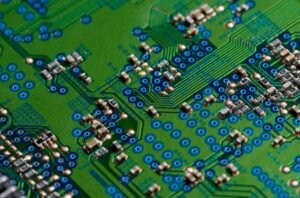Who Programs AI
Artificial Intelligence (AI) has become a prevalent technology, impacting various aspects of our lives. From virtual assistants to autonomous vehicles, AI-driven systems are reshaping industries and transforming the way we live and work. But have you ever wondered who is responsible for programming these powerful AI systems? In this article, we will explore the individuals and teams behind AI programming and shed light on the process of creating intelligent machines.
Key Takeaways
- AI programming involves a collaborative effort of diverse professionals.
- Different experts contribute to different stages of AI development.
- Companies, research institutions, and universities play a crucial role in AI programming.
**AI programming** is a multidisciplinary field that requires the expertise of specialists from various domains. While computer scientists and software engineers form the backbone of AI programming, professionals from fields such as **machine learning, data science, mathematics, and psychology** also contribute significantly to this process. This collaborative effort ensures a holistic approach to AI development, combining technical knowledge with a deep understanding of human cognitive processes and data analysis capabilities.
*Interestingly*, AI programmers not only build intelligent machines but also seek inspiration from biology and neuroscience to develop better algorithms and models. They draw insights from how the human brain processes information, enabling them to create AI systems that mimic human-like intelligence.
AI programming involves several stages, each requiring specialized expertise. **Data scientists** play a crucial role in the initial stage by gathering and analyzing vast amounts of data to identify patterns and develop mathematical models. **Machine learning engineers** utilize these models to train AI systems and enable them to learn from data. They design and implement algorithms that facilitate machine learning and ensure optimal system performance.
Another important group of AI programmers are **domain experts** who possess deep knowledge in specific fields such as finance, healthcare, or manufacturing. They provide valuable insights and domain-specific expertise to ensure that AI systems are tailored to address industry-specific challenges or requirements, enhancing their effectiveness and applicability.
Collaboration in AI Programming
A multi-disciplinary and collaborative approach is crucial in AI programming. Companies, research institutions, and universities work together to advance AI technology and push the boundaries of what is possible. They collaborate on research projects, share knowledge, and actively contribute to the development of innovative AI algorithms and techniques.
**Open-source communities** also play a significant role in AI programming. These communities bring together programmers, researchers, and enthusiasts who share their code, algorithms, and ideas freely. By providing access to a wide range of AI tools and resources, open-source communities democratize AI programming and enable developers from around the world to contribute to the advancement of AI technology.
The Future of AI Programming
The field of AI programming is evolving rapidly, driven by advancements in technology and increased demand for intelligent systems. As AI becomes more integrated into various industries, the need for skilled AI programmers will continue to grow. This creates exciting opportunities for professionals interested in shaping the future of AI.
AI programming is a dynamic, ever-evolving field, and it is essential for programmers to stay updated with the latest advancements, techniques, and best practices. Continuous learning and collaboration among professionals across different domains will be key to unlocking the full potential of AI and pushing its boundaries further.

Common Misconceptions
AI is All-Powerful
One common misconception about AI is that it is all-powerful and can solve any problem. While AI has shown remarkable capabilities in various areas, it is still limited in many ways.
- AI systems can perform tasks with efficiency but lack common sense and intuition that humans possess.
- AI is only as good as the data it is trained on, and biases present in the data can lead to biased results.
- AI technology is continuously evolving, and there are still challenges to be overcome for its full potential to be realized.
AI Will Take Over Jobs
Another misconception is the belief that AI will completely replace humans in the workforce, leaving people unemployed. While AI can automate certain tasks and change job requirements, it is more likely to augment human capabilities rather than replace them entirely.
- AI is more effective in tasks that can be automated, allowing humans to focus on higher-level decision-making and creativity.
- AI often requires human oversight and intervention to ensure ethical and responsible use.
- New jobs will emerge as AI technology advances, creating opportunities for human-AI collaboration.
AI Has Human-level Understanding
It is a common misconception that AI possesses human-level understanding. While AI can mimic human behaviors and perform specific tasks, it lacks the depth of understanding that humans naturally possess.
- AI can process vast amounts of data faster than humans but does not have the same cognitive abilities for reasoning or critical thinking.
- AI lacks emotional intelligence and the ability to comprehend complex social dynamics.
- Deep learning algorithms used in AI can be too reliant on patterns and correlations, potentially leading to incorrect conclusions or biases.
AI is a Singular Entity
Many people mistakenly perceive AI as a single, unified entity rather than a collection of technologies and algorithms. AI is a broad field that encompasses various approaches and techniques.
- AI includes machine learning, natural language processing, computer vision, expert systems, and more.
- Different AI algorithms and technologies are used for different purposes, depending on the problem at hand.
- AI systems are developed and trained by teams of researchers, engineers, and data scientists who work together to create specific AI applications.
AI Will Become Self-aware and Take Over the World
One of the most common misconceptions perpetuated by popular culture is the fear that AI will become self-aware and take over the world. This idea of AI ruling over humanity belongs more to science fiction than reality.
- AI systems lack consciousness and self-awareness, as they are designed to perform specific tasks and do not possess desires or intentions.
- AI technology is developed and controlled by humans, who have the responsibility to ensure its ethical use and prevent potential risks.
- The idea of AI becoming malevolent is a product of imagination rather than a scientific reality.

Artificial Intelligence Usage by Industry
Artificial intelligence (AI) is transforming various industries, revolutionizing the way they operate. This table highlights the different sectors utilizing AI and the percentage of companies within each industry that have adopted AI technologies.
| Industry | % of Companies Using AI |
|---|---|
| Healthcare | 56% |
| Finance | 42% |
| Retail | 39% |
| Manufacturing | 34% |
| Transportation | 27% |
AI Market Size by 2025
The rapid growth of AI technologies has led to a booming market. Here, we present the projected market size of AI by the year 2025.
| Year | Market Size (USD billions) |
|---|---|
| 2025 | 190.61 |
Top AI Programming Languages
Various programming languages are used to develop AI applications. The table below lists some of the most widely used programming languages in AI development.
| Programming Language | Popularity |
|---|---|
| Python | 1 |
| Java | 2 |
| C++ | 3 |
| R | 4 |
| Julia | 5 |
Impact of AI on Job Market
AI’s rapid integration into various industries raises concerns about job displacement. The table outlines the projected impact on job roles due to AI adoption.
| Job Roles | % at High Risk |
|---|---|
| Data Entry | 99% |
| Customer Services | 85% |
| Telemarketing | 75% |
| Machine Operation | 67% |
| Financial Analysis | 23% |
AI Ethics Guidelines by Governments
Recognizing the ethical concerns surrounding AI, governments have begun developing guidelines. The table presents the countries that have established AI ethics frameworks.
| Country | AI Ethics Framework |
|---|---|
| United States | Yes |
| European Union | Yes |
| Canada | Yes |
| Germany | Yes |
| China | No |
AI Technologies and Applications
The table below provides examples of AI technologies and their applications across various domains.
| AI Technology | Application |
|---|---|
| Machine Learning | Image Recognition |
| Natural Language Processing | Chatbots |
| Computer Vision | Autonomous Vehicles |
| Robotics | Industrial Automation |
| Expert Systems | Medical Diagnosis |
AI Research Institutions
Leading academic and research institutions play a vital role in AI development. The following table showcases some renowned institutions focused on AI research and innovation.
| Institution | Location |
|---|---|
| MIT Computer Science and Artificial Intelligence Laboratory (CSAIL) | United States |
| Stanford AI Lab | United States |
| Oxford Robotics Institute | United Kingdom |
| DeepMind | United Kingdom |
| Google Brain | United States |
AI in Advertisement Personalization
Advertisers are leveraging AI to personalize advertisements for consumers. The table outlines the percentage of consumers willing to engage with personalized ads.
| Age Group | % Willing to Engage |
|---|---|
| 18-24 | 63% |
| 25-34 | 57% |
| 35-44 | 48% |
| 45-54 | 39% |
| 55+ | 24% |
Annual Investment in AI Startups
The investment in AI startups has been on the rise in recent years. This table showcases the annual investment in AI startups globally.
| Year | Investment (USD billions) |
|---|---|
| 2017 | 5.58 |
| 2018 | 10.75 |
| 2019 | 18.46 |
| 2020 | 28.18 |
| 2021 | 43.87 |
Artificial intelligence has become an invaluable tool across various industries, enabling innovative solutions and enhancing efficiency. From healthcare and finance to advertising and robotics, AI is transforming the way organizations operate. As AI continues to advance, it is crucial to address ethical concerns and ensure inclusive development. Embracing AI technologies responsibly will unlock immense potential for future societal benefits.
Frequently Asked Questions
Who Programs AI?
Artificial Intelligence (AI) is typically programmed by a team of skilled individuals, including data scientists, computer programmers, and subject matter experts. These professionals collaborate to design and develop AI algorithms, machine learning models, and neural networks that power AI systems.
What skills are required to program AI?
Programming AI requires a strong understanding of computer science principles, software development, and statistical analysis. Proficiency in programming languages such as Python, R, or Java is essential. Additionally, knowledge of machine learning techniques, data preprocessing, and data visualization are advantageous skills for AI programmers.
How do AI programmers build an AI system?
AI programmers start by defining the problem that the AI system will solve. They then collect and preprocess the relevant data, choose the appropriate machine learning algorithms, train the models using the data, and fine-tune them for optimal performance. The programmers also take care of testing, evaluation, and deployment of the AI system.
What tools or frameworks do AI programmers use?
AI programmers use a variety of tools and frameworks such as TensorFlow, PyTorch, Keras, and scikit-learn to build AI systems. These frameworks provide pre-built functions and libraries for tasks like data manipulation, model construction, and optimization. They also offer interfaces to work with GPUs and distribute computing resources for faster training and inference.
How do AI programmers handle ethical challenges in AI development?
AI programmers are responsible for addressing ethical challenges in AI development. They must ensure their AI systems are fair, transparent, and unbiased. They should follow ethical guidelines when collecting and using data, and regularly evaluate and mitigate any potential biases or unintended consequences that may arise from the AI system.
What educational background is preferred for AI programmers?
An educational background in computer science, data science, or a related field is preferred for AI programmers. A bachelor’s or master’s degree that covers topics such as machine learning, algorithms, statistics, and programming provides a solid foundation for a career in AI programming. Continuous learning and staying updated with the latest advancements in AI are also crucial.
What are the job prospects for AI programmers?
The job prospects for AI programmers are excellent. As industries across the globe increasingly adopt AI technologies, the demand for skilled AI programmers continues to grow. AI programmers can find employment in various sectors, including healthcare, finance, manufacturing, cybersecurity, and entertainment. Additionally, opportunities for AI freelancers and consultants are also abundant.
Are there any ethical considerations in AI programming?
Yes, AI programming raises ethical considerations. AI programmers must consider issues such as privacy, data security, bias, and social impact when developing AI systems. They should ensure the AI models are trained on diverse and representative datasets to avoid discrimination. Transparent communication about the limitations and potential errors of AI systems is also essential.
What are the challenges faced by AI programmers?
AI programming involves several challenges. Some common challenges include acquiring high-quality data, addressing data biases, selecting and fine-tuning suitable algorithms, managing computational resources effectively, and interpreting and explaining the decisions made by AI systems. Additionally, keeping up with the rapid advancements in AI technology is a constant challenge for AI programmers.
Can AI programming be automated?
While certain aspects of AI programming can be automated, the process as a whole requires human expertise. AI programmers play a critical role in problem formulation, data preprocessing, feature engineering, model selection, and interpreting the results. Their creative thinking, domain knowledge, and ability to adapt to new challenges make them indispensable in the AI development process.





